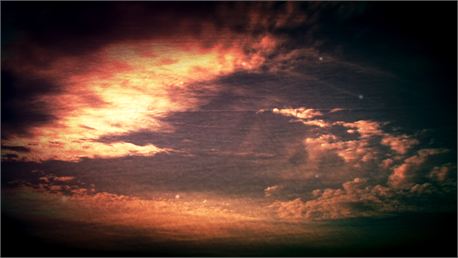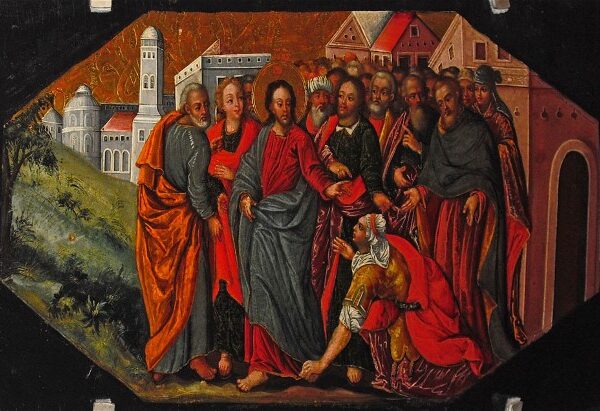“If the foundations are destroyed, what can the righteous do?”

“Pull the plug”
February 15, 2024
A homework assignment on Climate Change
March 2, 2024“The West has lost the golden thread that binds us to Creation, God and each other. Unless we find it again, there is no of halting our dissolution…The shadow of the Enlightenment’s failure to replace God with reason has engulfed the West and plunged us into a new Dark Age.” –Rod Dreher, The Benedict Option
A friend who hosts international students tells of a young man from Cameroon that stayed with her family. This Christian student heard so often and easily from the Lord, that my friend, herself a strong believer, remarked on it in wonder. The young man replied, “You Americans have so many distractions. It’s hard for you to hear His voice.”
Screwtape’s words to Wormwood come to mind: “We will make the whole universe a noise in the end.” (The Screwtape Letters, C. S. Lewis)
We groan over the flagrant sins of our culture, and rightfully so. But because we are so used to living the way we do, we don’t realize how nearly every aspect of our lives, from how cluttered and noisy and scattered our days are, to how and where something as basic our food comes from, are a stunning aberration from the way every other people group on earth lived since the dawn of history.
“In pre-industrial America (prior to 1790) more than two-thirds of the population was directly involved in such primary activities as farming and forestry, with a small minority involved in manufacturing and even fewer in services. Today, these allocations have reversed dramatically” (Rory Groves, Durable Trades).
We are detached from the land, from our food, and from our neighbors. As a result, the baseline teachings of Christ on sowing and reaping, soil quality and regeneration, seasons and the cyclical nature of life (rather than the linear thinking that dominates the West) and the dependence on the Father to provide are theoretical metaphors and not experiential. Our work, which our Puritan forefathers saw as a form of worship, has lost its meaning and become a means to the ends of more leisure, comfort, and pleasure. Our connections, for the younger generation in particular, are digital and superficial. Entertainment and how others perceive us dictate our lives, rather than seeking how we might improve our minds and spirits to bless the Almighty and benefit our fellow man.
Has Societal Collapse already occurred?
We are on an unsustainable course as a society. Indeed, some students of civilizations believe collapse has already happened.
Rory Groves observes, “Looking at stock market rallies, technological breakthroughs, and material abundance, it would seem unlikely that collapse has already occurred. But material abundance, along with its sister decadence, is a lagging indicator. The institutions and social contracts that have supported our way of life for centuries – marriage, family, faith, community, and morality – have been utterly decimated” [sic].*
Few may argue the West’s destructive course, but what does the final outworking of a disintegrated culture look like? Can even widespread revival pull a culture back from the precipice?
As a Christian, I see the world simultaneously through two lenses. The one is observing the horrors of life in post-modern America, with its fearful velocity in recent years of lawlessness – infanticide, polygamy, pedophilia, trafficking, misogyny, suicide, crime, institutional corruption, and child mutilation; at the same time, I’m scrutinizing these trends against the backdrop of history, from ancient to present, and the fate of parallel civilizations.
The other lens sees the influence of the praying church on history, from Peter’s supernatural deliverance from Herod’s imprisonment, all the way up to the fall of the Soviet Union and pivotal World War Two victories such as Dunkirk and the Battle of Britain.
The latter lens keeps me from despair. The former begs the question, “At what cost will we see Divine Liberation?”
No Chance for Normal
“The most socially disruptive effect of the industrial revolution was the way it severed the place where adults work from the place where adults live. Most of our current family questions – from loud disputes over gender roles to child care to low fertility – derive from this great disruption.” – Allan C. Carlson.
“If the foundations are destroyed, what shall the righteous do?” (Psalm 11:3). The picture painted by the Psalmist is of a house fallen to ruin as in an earthquake through the destruction of moral principles. Ellicott’s commentary digs into the Hebrew and renders, “If the foundations be destroyed, what will become of the tower, or superstructure?”
This present generation of children and young adults hasn’t a chance of growing up well-adjusted and mature and free of the effects of technology, mass propaganda, and materialism without a seismic disruption in the current way of life.
These assessments are not doom and gloom. Rather, I have been praying these many months what Divine Interruption might look like, be it the Lord Himself pulling the plug, or allowing corrupt globalists to bring forth their agenda. My prayer is David’s – “I am in great distress. Let us now fall into the hand of the LORD, for His mercies are great; but do not let me fall into human hands” (2 Samuel 24:14).
I believe the Lord’s judgments are coming on the systems of the world, and that He is calling His people out of them. In light of this, we should seek to become less government-corporate dependent in terms of where we get our information and how much we rely on these institutions for our welfare. We should learn forgotten skills our grandparents relied on such as growing and butchering and canning our own foods. We change diet and lifestyle to get off prescription medication wherever possible. We can bless our neighbors and show that we are there for them, and pull resources together in our churches to prepare to help in potential crises.
Above all, I believe each of us should be spending dedicated and daily time in prayer, both alone to hear from the Lord and as a corporate Body travailing to bring His kingdom.
If this resonates with you, what has the Lord been leading you to do to prepare for what lies ahead?





